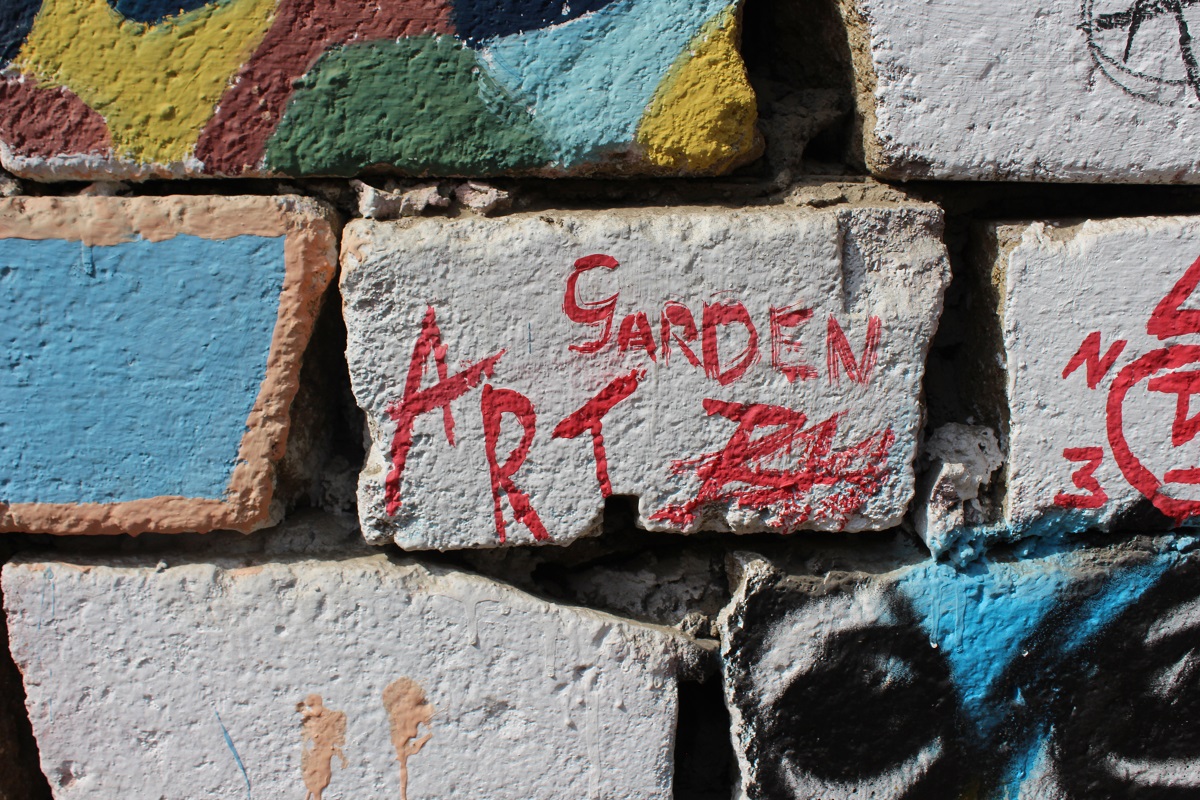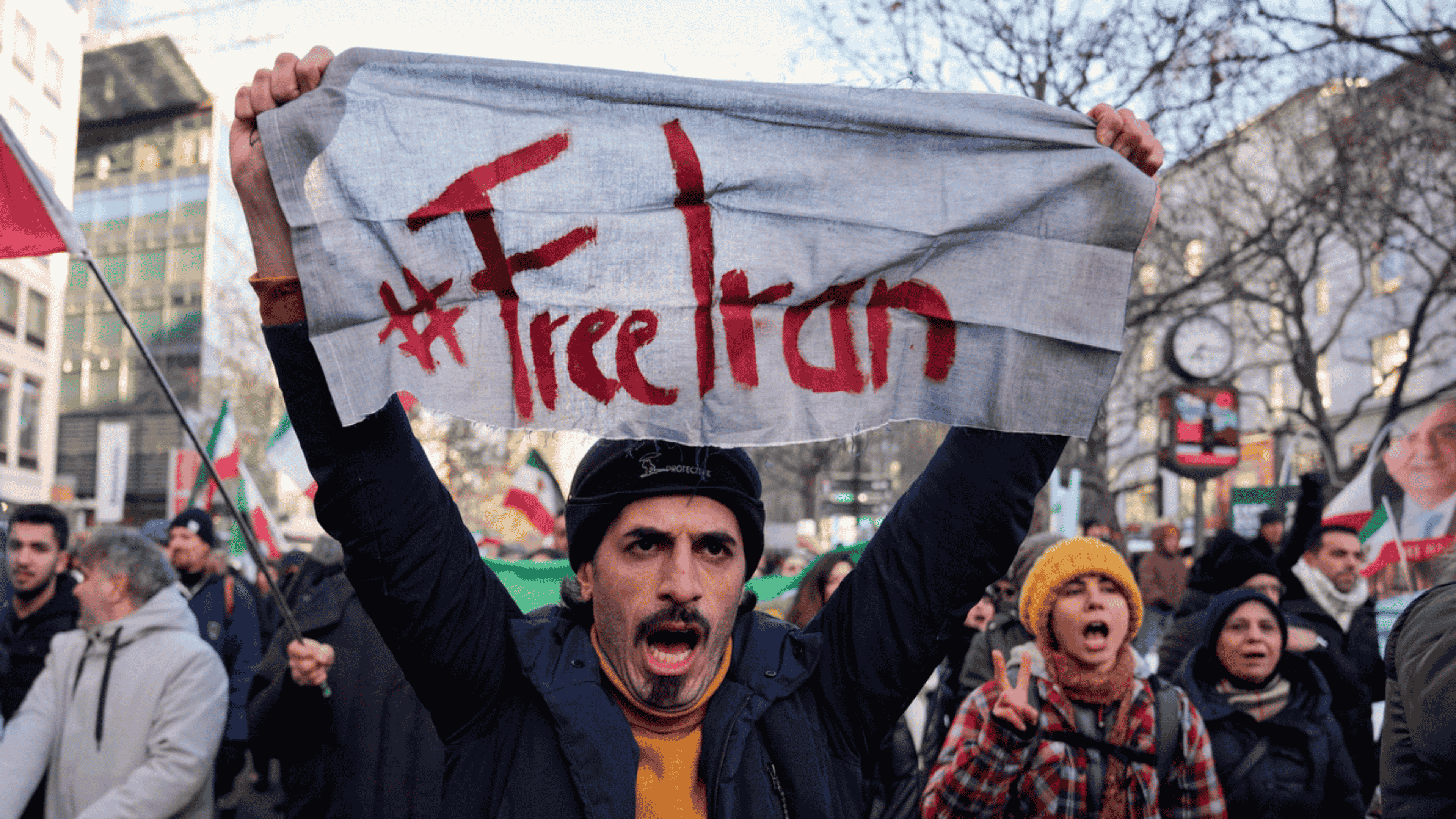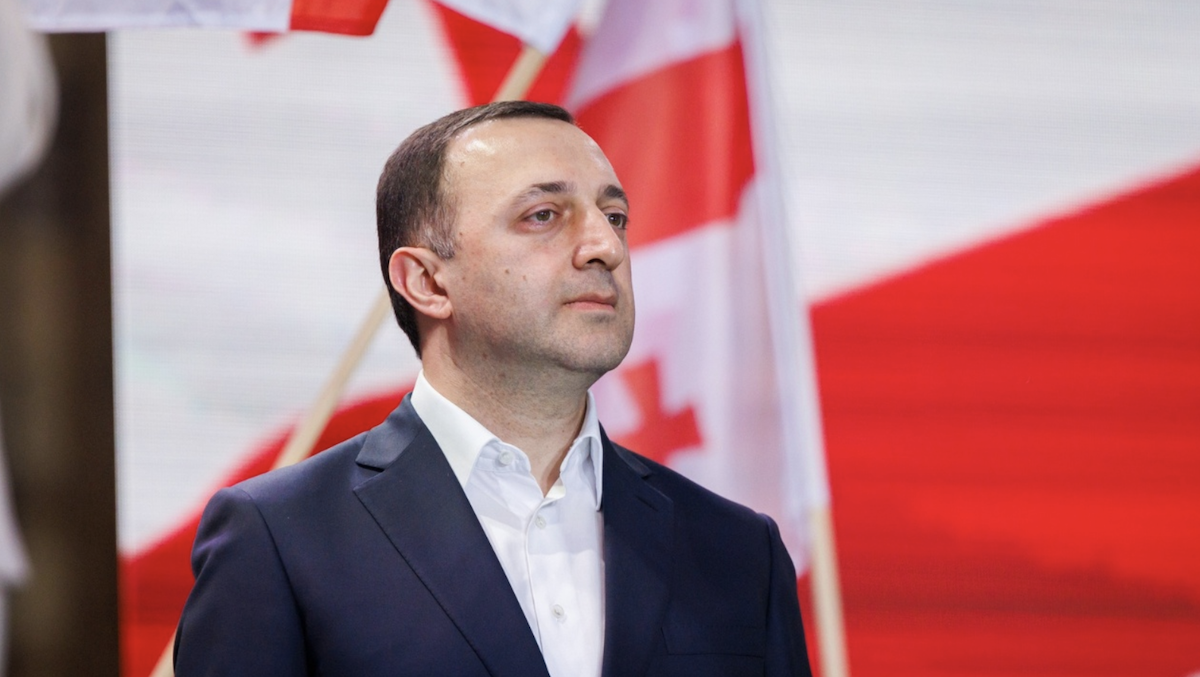"Random successes": Azerbaijani cinema today
Film industry in Azerbaijan
“Since gaining independence, Azerbaijan’s cinema has been trying to find its path, but it hasn’t been very successful so far,” says film critic Haji Safarov about the current state of modern Azerbaijani cinema.
Before the early 1990s, cinema in Azerbaijan, like in other Soviet republics, was controlled by Moscow. Film production was centrally managed, and the entire industry was state-funded. The collapse of the Soviet Union led to the downfall of the film industry.
Afterward, Azerbaijani cinema went through a long period of decline. Like many other sectors, the film industry experienced chaos and uncertainty for many years.
- How the entire fund of Abkhazia national painting was destroyed in one night. What to do now?
- Filmmakers in Georgia boycott ministry of culture “for repression and destruction of cinema”
- “Artists have always lived in hardship.” The story of an artist from an Azerbaijani province
So, what has changed in our cinema during the years of independence? How much has Azerbaijan’s film industry been able to develop?
Film critic and creator of the channel “Film aç” (“Turn on the Film”) with a wide audience on social media, Haji Safarov, spoke to JAMnews about the challenges facing modern Azerbaijani cinema.
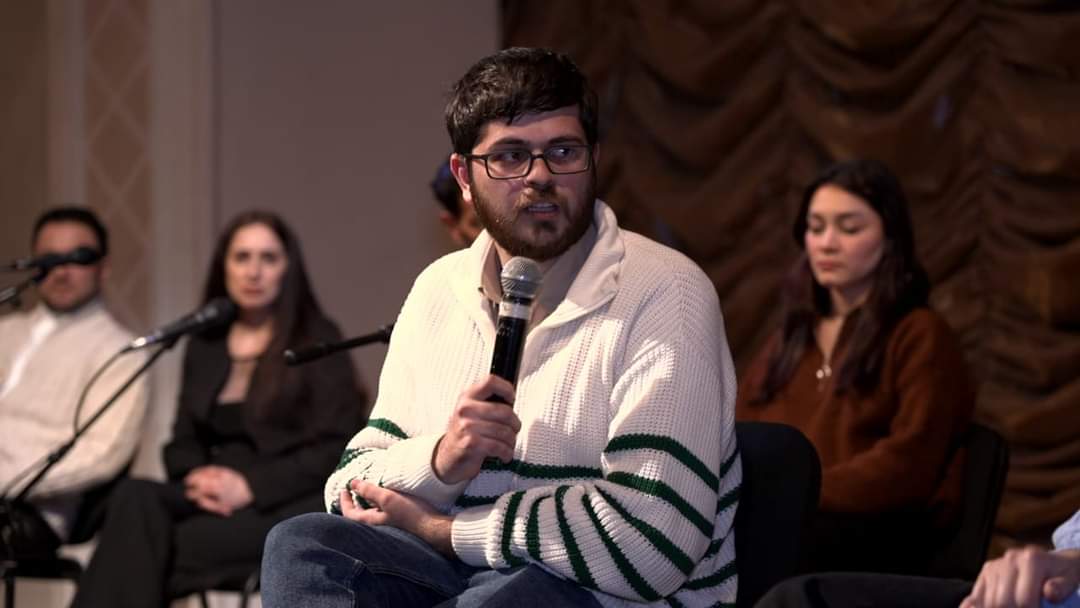
“Currently, Azerbaijan is attempting to build its film industry, albeit very slowly. Why do I say ‘slowly’? Because in countries like Azerbaijan, where the film market is relatively small, the film industry cannot be developed solely through a free market. State support is necessary.
In this case, changes in Azerbaijan’s Ministry of Culture over the past few years and a general negative attitude towards the cinema sector have further delayed this entire process. For example, much time was spent on establishing the Azerbaijan Republic Film Agency, and there was hope that everything would improve thereafter. However, after its establishment, it became clear that we hadn’t fully formed the operational mechanisms, so it will take several more years to see results,” Safarov explains.
Currently, Azerbaijan has two private cinema chains operating – ‘Park Cinema’ and ‘Cinema Plus’. There is also the ‘Nizami Cinema Center’, which has existed since Soviet times, renovated and modernized to contemporary standards in 2011.
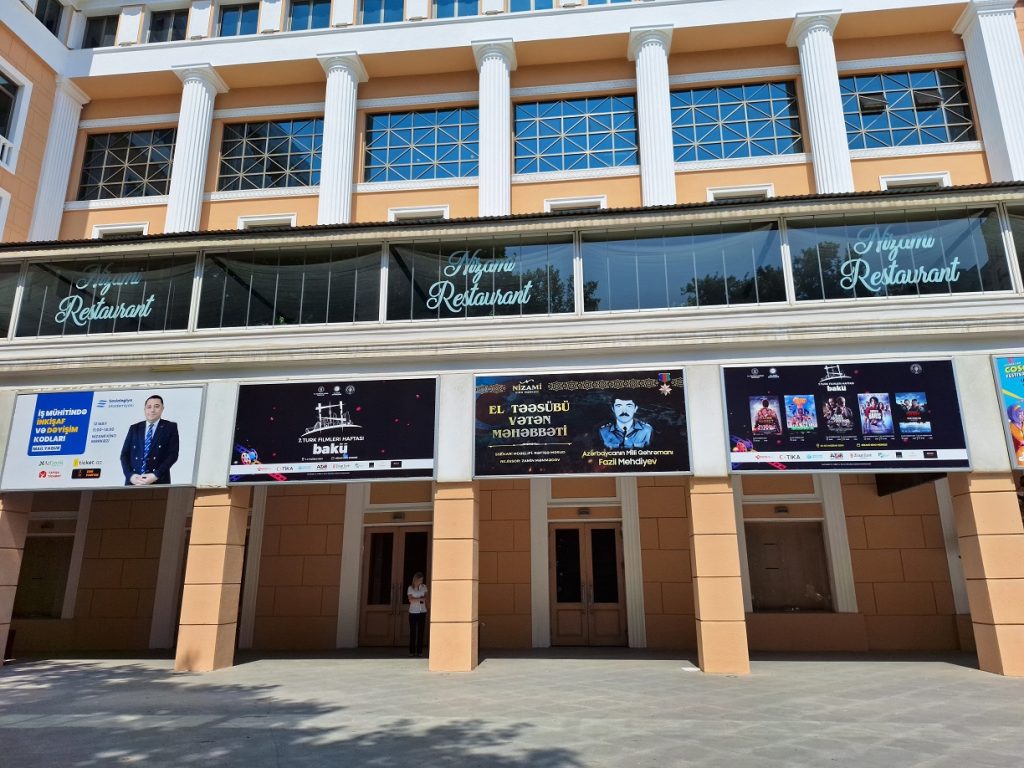
During the first three months of 2024, these cinemas screened 12 domestic films.
According to State Statistics Committee data, out of 560 films shown in the country’s cinemas in 2022, only 60 were domestic productions. In last year’s statistics, this number did not exceed 40.

Haji Safarov attributes this to weak communication between the audience and the film industry.
“Of course, local films are shown in cinemas. But not every film that is made can make it to the big screen. Cinemas may choose not to screen certain films if they don’t see audience interest. So, one of the reasons is related to the disconnect between the audience and the film industry. When these relationships are established correctly, when films generate interest among viewers, any result can be achieved,” says Safarov.
State support and censorship
Almost every year, a certain amount of money from Azerbaijan’s state budget is allocated to the film industry. For example, according to a decree signed by president Ilham Aliyev in 2019, five million manats (about $3 million) were allocated from the President’s Reserve Fund to the Ministry of Culture to ensure the implementation of projects related to state-commissioned film production, support for film production, and the creativity of young filmmakers.
In 2022, by decree of the country’s head, provisions were made for the activities of the Azerbaijan Republic Film Agency, with its statutory fund of 100,000 manats (about $58,800) to be formed from the state budget.
Does state support lead to censorship?
“International experience shows that in any country interested in developing its film industry, there is some form of state support. Even in the USA, there is support through tax incentives for filming in certain states or refunds on expenditures.
In Europe, the system is structured in a way where budgets are allocated through various tenders and grant competitions to filmmakers to produce new films. However, the key principle is that regardless of financial support, the state should not interfere in the creative process.
In Azerbaijan, all films are fully funded by the state, which inevitably leads to certain issues. By financing films entirely, the government sometimes sees itself entitled to influence their content, which can result in censorship in the creative process,” explains the film critic.
Haji Safarov believes that state support for the film industry is crucial because this sector requires significant funding. In this regard, he considers the European experience ideal:
“The state allocates a certain amount for part of the work, and producers try to find the remaining funds themselves. After production, the film recoups its costs through screenings in cinemas.”
“Cinema industry in Azerbaijan is not entirely free”
Haji Safarov points out bureaucratic forms of censorship:
“It wouldn’t be accurate to say that the film industry in Azerbaijan is free. However, it’s also incorrect to speak of complete censorship because our censorship mechanism is not well-structured. For example, independent individuals can make films on any topic they want. But here, bureaucratic obstacles sometimes arise, such as with filming on the streets.
To proceed smoothly, you need permission from several government bodies. When working with a team of more than five people, this inevitably attracts attention, and employees of various government agencies start asking questions like ‘Who are you and what are you filming here?’
However, international practice has a unified system where you submit an application with your film’s topic and promptly receive all necessary permissions.
In our country, for example, if you plan to film in Surakhani district in Baku, you’ll need permission from the executive authority of Surakhani district, the executive authority of Baku city, the Ministry of Internal Affairs, the district police department where the filming will take place, and so on,” explains Safarov.
He adds that sometimes obtaining these permissions takes a long time, which increases filmmakers’ expenses. If a film director plans to start shooting in two weeks, the entire crew cancels their other work from that date. But if permissions are not obtained by then, filming delays occur, and consequently, the crew has to pay fees for days when no actual work is done. This further reduces the already limited budget.
Few successes of local cinema
Some films and series produced in Azerbaijan in recent years have been successful not only among local audiences but also internationally. Haji Safarov considers these works, created by independent artists, as “accidental successes” of Azerbaijani cinema. This is because these successes do not progress along a continuous and increasing line.
“For instance, Elvin Adigezel’s film ‘Bilasuvar’ was selected to participate in the Busan International Film Festival, ‘Inner Island’ (‘Daxildəki ada’) for the Sarajevo Film Festival, and Hilal Baydarov’s film ‘When Persimmons Ripen’ (‘Xurmalar yetişən vaxt’) received awards at two major festivals. In other words, good films are made, albeit sporadically. Among the young generation, there are those whose projects are selected for many prestigious programs and supported, they may not be well-known to the masses, but the film community knows them.
Some series broadcasted on Public Television are also enjoying success. The recently aired series ‘Alatava’ was received with great interest. This, in itself, is an achievement.”

The film “Tar Barrel” (“Zəhər tuluğu”) by Taleh Yuzbekov was also highly successful in cinemas.
But these successes are not consistent. A person makes a film, and then for 10 years cannot do anything. Simply no opportunity.
So, of course, there are good films, but it’s just the success of a few films, not a consistent and sustainable success of the industry.”
In Azerbaijan, artists often complain about small fees and salaries. Actors, directors, screenwriters, and everyone else in the film industry claim that their work is not properly valued. This problem forces many talented individuals with high creative potential to seek additional income in show business and even the “wedding business.”
“You definitely have to do something else to earn extra money.
In short, people working in this industry are not rolling in clover. They do this work mostly out of love for cinema,” says Safarov.
However, according to the film critic, it can be said that Azerbaijani cinema has been moving in a positive direction since the 1990s, but this cannot be considered a sufficiently good result:
“Azerbaijani cinema needs the political will of the state that will be interested in developing this sphere. At the same time, people working in the film industry must focus on a common goal, work diligently for the greater good. For this, first and foremost, they must set aside their disagreements and put forward common demands so that political will can take action.”












